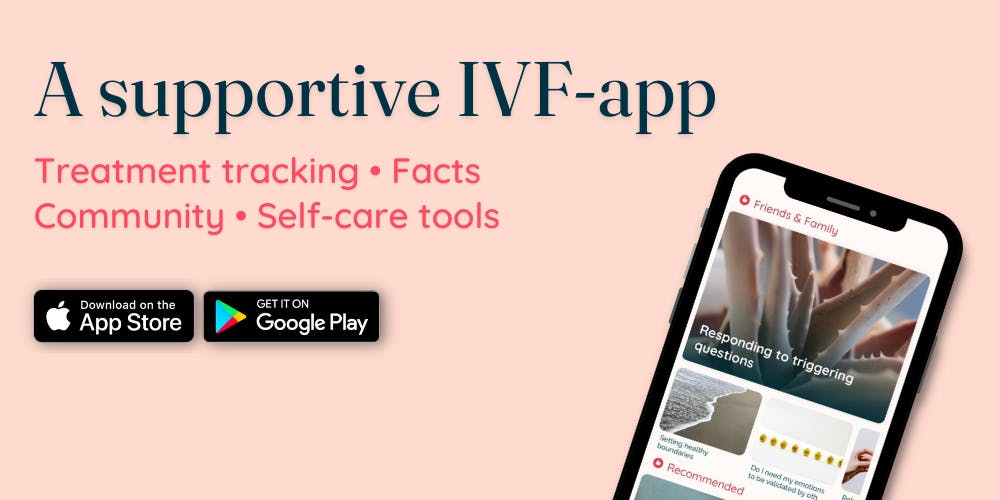Fertility treatments - Which issues do they treat?
There are tons of fertility treatments out there, especially if you count all the preparatory and add-on treatments. This is an overview of key treatments that are available, and the type of issues that they are suitable for.
Ovulation induction
The focus of ovulation induction therapy is to stimulate healthy ovulation if it isn’t achieved naturally or regularly enough to be able to time intercourse.
To induce ovulation, hormone medicines such as Letrozole or Clomid are normally used. The follicle development is monitored via ultrasound and sometimes another shot is taken to stimulate ovulation at a specific time. Then sperm is then introduced into the vagina at the right time, either through sex or intrauterine insemination (IUI).
What issues does ovulation induction help with?
Ovulation induction helps with ovulation issues, which is when ovulation is irregular or doesn’t happen at all.
Intrauterine Insemination (IUI)
With IUI, sperm is separated from the semen and the washed sperm is then placed in the uterus near the fallopian tubes when ovulation occurs. This is done with the hopes that the timing of insemination will be perfectly coordinated with a mature egg being released so that the sperm will have a better chance of reaching the egg. Ovulation can be induced if the woman doesn’t ovulate on her own, or it can be natural. To follow natural ovulation, doctors will monitor the woman via ultrasound to find out the right timing for insemination.
Mostly, IUI is utilized when donor sperms are used as it’s less invasive and expensive than IVF. IVF would be the next step if IUI doesn’t work. Heterosexual couples more often start with ovulation induction if there is an ovulation issue, and then move straight to IVF. Otherwise, they would skip IUI entirely.
What issues does IUI help with?
- It’s sometimes used as the next step after ovulation stimulation, but in many countries, doctors suggest going straight to IVF.
- It is however the usually the first step when donated sperms are used.
In Vitro Fertilization (IVF)
IVF is the most effective, common, and talked about form of assisted reproductive technology. It entails removing eggs and sperm from the body to be placed into a petri dish for fertilization before being transferred to the uterus.
IVF is expensive and invasive, but it's also much more successful than any of the less complicated fertility treatments.
What issues does IVF help with?
- Ovulation issues; when ovulation is irregular or doesn’t happen at all.
The woman takes hormone drugs that stimulate follicle growth to the point of maturity where they can be surgically retrieved from the ovary and fertilized in the lab. - Poor egg quality
IVF cannot produce healthy eggs that don’t exist or alter egg quality. But if a woman has a small share of high-quality eggs, stimulating the ovaries can help by making a larger number of eggs available, increasing the odds of finding a good egg. - Sperm issues
If a man has few sperm or sperm that don't swim, IVF can facilitate the fertilization process. - Damaged fallopian tubes
If the fallopian tubes are blocked or damaged, natural conception is impossible or at least more difficult. With IVF, fertilization then takes place outside of the body and the embryo is placed straight into the uterus so a tube isn't really needed.
Donor eggs and sperm
Donated eggs and sperms are available if you are unable to use your own in the conception process.
Donor eggs
If IVF does not produce healthy embryos, and it’s concluded this is due to poor egg quality, which is often a result of mature age, the next step could be using donated eggs as part of the IVF. Other reasons to use donor eggs are:
- A depleted egg reserve
For example, due to premature menopause, meaning you’re unable to retrieve enough eggs even with IVF. - When there are no eggs because ovaries have been affected or removed due to illness.
- When there’s a risk of passing on a genetic disease.
- When you’re a same-sex couple looking to transfer an embryo to a surrogate.
Donor sperm
Donor sperm could be added to an IUI cycle or IVF, and is often used by lesbian couples or single mothers. In heterosexual couples, donor sperm is used if the man has very low levels or no sperm at all, or if it's been determined that there is a major issue with sperm quality.
2022-03-08

Evangelia Elenis, MD, PhD.
This text is fact checked by Evangelia Elenis, MD, PhD. Dr. Elenis is a chief physician in Obstetrics and Gynecology, and a subspecialist in Reproductive Medicine. She is a PhD and affiliated researcher at Uppsala University with postdoctoral studies at Harvard Medical School.
A mental health app for your fertility journey
Evidence-based self-care tools and facts. Supportive community. Treatment tracking.
Previous articles
Breaking the silence: Infertility and stress during stress awareness month
2025-04-14
Exciting news: Tilly is now part of Rhea
2025-03-31
How infertility impacts men's mental health and ways to cope
2024-11-22
Baby Loss Awareness Week: coming together to support those affected
2024-10-14
PCOS and mental health: a crucial connection
2024-09-25
How to support a friend struggling with involuntary childlessness: A guide for loved ones
2024-09-17
